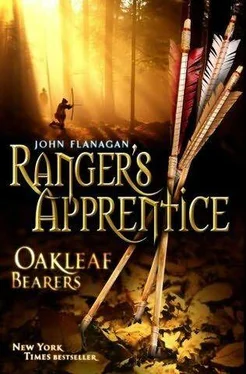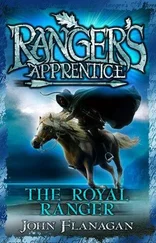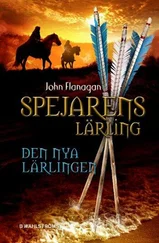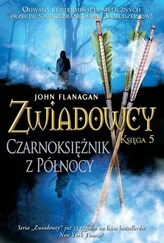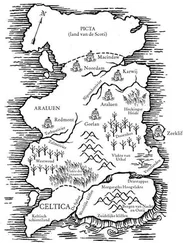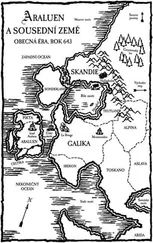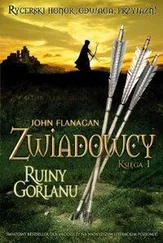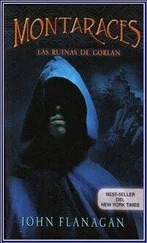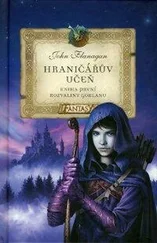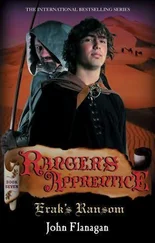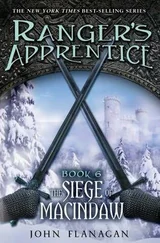John Flanagan - Oakleaf bearers
Здесь есть возможность читать онлайн «John Flanagan - Oakleaf bearers» весь текст электронной книги совершенно бесплатно (целиком полную версию без сокращений). В некоторых случаях можно слушать аудио, скачать через торрент в формате fb2 и присутствует краткое содержание. Жанр: Фэнтези, на английском языке. Описание произведения, (предисловие) а так же отзывы посетителей доступны на портале библиотеки ЛибКат.
- Название:Oakleaf bearers
- Автор:
- Жанр:
- Год:неизвестен
- ISBN:нет данных
- Рейтинг книги:4 / 5. Голосов: 1
-
Избранное:Добавить в избранное
- Отзывы:
-
Ваша оценка:
- 80
- 1
- 2
- 3
- 4
- 5
Oakleaf bearers: краткое содержание, описание и аннотация
Предлагаем к чтению аннотацию, описание, краткое содержание или предисловие (зависит от того, что написал сам автор книги «Oakleaf bearers»). Если вы не нашли необходимую информацию о книге — напишите в комментариях, мы постараемся отыскать её.
Oakleaf bearers — читать онлайн бесплатно полную книгу (весь текст) целиком
Ниже представлен текст книги, разбитый по страницам. Система сохранения места последней прочитанной страницы, позволяет с удобством читать онлайн бесплатно книгу «Oakleaf bearers», без необходимости каждый раз заново искать на чём Вы остановились. Поставьте закладку, и сможете в любой момент перейти на страницу, на которой закончили чтение.
Интервал:
Закладка:
"No matter what?" Halt insisted. He wanted the Skandian to commit totally. He knew that no jarl would ever go back on a sworn vow of protection.
"No matter what," Erak replied, and held out his hand to the Ranger. They clasped hands firmly, sealing the bargain.
"Now," said Halt, "all I have to do is work out a way of beating these horse-riding devils."
Erak grinned at him. "That should be child's play," he said. "The hard part will be convincing Ragnak about it."
18
A S IT TURNED OUT, THAT TASK WAS A LOT EASIER THAN either Erak or Halt would have thought possible. Ragnak was many things, but he was no fool. When the small party returned to Hallasholm, bringing news that an army of close to six thousand Temujai horsemen was in the process of invading his country, he did the same mental arithmetic that Erak had done. He knew as well as Erak that he could muster a force of no more than fifteen hundred warriors-possibly less, considering that some of the outlying settlements close to the border had probably been overrun and defeated already.
Like most Skandians, Ragnak wasn't afraid of dying in battle. But he also didn't believe that one should seek such an end without first trying all other alternatives. If there were a way of defeating the invaders, he would examine it. Consequently, when Erak told him of Halt's knowledge of the Temujai, and his agreement to lend his services, and when Borsa and several other council members welcomed the idea, he accepted their arguments with no more than token resistance. As for the matter of the recaptured slaves, he dismissed the matter entirely. In normal times, he might seek to punish runaways, as a way of discouraging further escapes. But these weren't normal times, and with an invading army on his doorstep, the matter of two recaptured slaves was of slight interest to him at best.
He did, however, demand to see Halt in his private quarters, with no one else present.
He knew enough about Rangers to respect their abilities and their courage as a group. But he wanted the chance to assess this man as an individual. Ragnak's ability to form such evaluations of men had been one of his principal qualities as leader of the Skandians. Evidence of his skill was the fact that he habitually chose Erak to handle the more difficult tasks that went with ruling a nation of independent-minded, argumentative warriors.
Halt was shown to the low-ceilinged, timber-lined room where Ragnak spent his private hours-and these days, the Oberjarl noted ruefully, there were precious few of those. The room was like all the senior Skandians' quarters-warmed by a pine log fire, with bearskins furnishing the pinewood-carved furniture, decorated with the polyglot results of years of plundering coastal villages and other ships.
The centerpiece of the room was an immense crystal chandelier, taken from an abbey on the coast of the Constant Sea years ago. With no high ceiling to hang it from, Ragnak had chosen to leave it resting on a rough pine table. It dominated the room and was more than a little awkward in the confined space. Furthermore, in its tabletop position it was totally incapable of performing its designed intention. There was no way that the fifty small oil lamps could be lit and kept burning safely.
But Ragnak loved the piece. To him, it represented art at its highest. It was an object of rare beauty, incongruous as it might be in this setting, and so he left it there.
He looked up from a scroll he was reading as Halt knocked at the door and entered, as he had been told to do. Ragnak frowned. He equated prowess in battle with physical strength and size. The man before him looked wiry enough, but his head would barely come past the Oberjarl's shoulder if both were standing. There were no two ways about it. He was a small man.
"So, you're Halt," he said, not sounding too interested in the fact. He saw the little man's right eyebrow rise momentarily.
Then the man repeated, in exactly the same tone: "So, you're Ragnak."
Ragnak's heavy brows came closer together in an expression of anger. But inwardly, he felt a quick flicker of respect for the man in front of him. He liked Halt's instant reply, liked the way the Ranger was showing no sign of being cowed.
"People address me as 'Oberjarl,'" he said in an ominous tone.
Halt gave just the slightest suggestion of a shrug.
"Very well, Oberjarl," he replied. "I'll do the same."
Halt studied the Oberjarl with a keen eye. He was huge, but that was fairly normal for Skandians. He didn't have the classic, sculptured musculature that a person such as Horace would achieve in the next few years, with broad shoulders and narrow hips. Rather, like all Skandians, he was bulky throughout his entire body, built like a bear.
The arms and legs were massively muscled and the face was bearded, with the long beard lovingly separated into two sweeping masses. The hair had been red originally, but now the onset of age was turning it the color of ashes in a cold fireplace.
There was a faded scar on one cheek, stretching from just under the left eye down to the point of the man's chin. Halt guessed it to be an old injury. Again, there was little to remark on in this. The Skandians chose their leaders from the ranks of warriors, not administrators.
Most of all, Halt noted the eyes. He recognized the dislike that he saw there. He had been expecting to see that. But the eyes were deep-set and he could read an intelligence and cunning there as well. For that, he was grateful.
If Ragnak had been a stupid man, Halt's position might well have become untenable here. He knew of the Oberjarl's ingrained dislike for Rangers, and knew the reasons behind it. But an intelligent leader would be aware of Halt's usefulness to him, and might be prepared to set aside his personal dislike for the greater good of his people.
"I have no love of your kind, Ranger," the Oberjarl said. His mind was obviously running on lines similar to Halt's.
"You have little reason to," Halt agreed. "But you might well find a use for me."
"So I'm told," the Skandian leader replied, once again finding himself admiring the Ranger's forthrightness.
When he'd first heard of his son's death at Thorntree, Ragnak had been overcome with grief and rage-at Araluens, Rangers and, in particular, at King Duncan.
But that had been an immediate and spontaneous reaction to his grief. A realist, he knew that his son had risked death by joining the ill-fated adventure with Morgarath's forces and, indeed, death in battle was commonplace among the Skandians, who lived to raid and pillage. As a result, over the intervening months, Ragnak's anger, if not his grief, had faded. His son had died honorably, with a weapon in his hands. That was all any Skandian could ask. That wasn't to say that he felt any affection for Rangers, but he could respect their abilities and their courage, and their worth as opponents.
Or even, possibly, as allies.
Ragnak's vow against King Duncan and his family was another matter altogether. Chances are, had he waited, his hatred might well have abated and a more reasonable attitude might have prevailed. But, acting on impulse, he had sworn a vow to the Vallas, the triple deity who ruled Skandian religion, and that vow was inviolable.
Ragnak might be able to accept Halt as an ally. He might be able to recognize that those same qualities that made the Ranger a dangerous opponent could also render him a useful confederate in the upcoming battle against the Temujai invaders. That would be his personal choice. But his Vallasvow against Duncan was irrevocable.
"So," Ragnak said abruptly. "Can you help us?"
Halt answered without any hesitation. "I'm willing to do whatever I can," he said. "What that might be, I have no idea as yet."
"No idea!" Ragnak repeated scornfully. "I was told that Rangers are always full of ideas."
Читать дальшеИнтервал:
Закладка:
Похожие книги на «Oakleaf bearers»
Представляем Вашему вниманию похожие книги на «Oakleaf bearers» списком для выбора. Мы отобрали схожую по названию и смыслу литературу в надежде предоставить читателям больше вариантов отыскать новые, интересные, ещё непрочитанные произведения.
Обсуждение, отзывы о книге «Oakleaf bearers» и просто собственные мнения читателей. Оставьте ваши комментарии, напишите, что Вы думаете о произведении, его смысле или главных героях. Укажите что конкретно понравилось, а что нет, и почему Вы так считаете.
